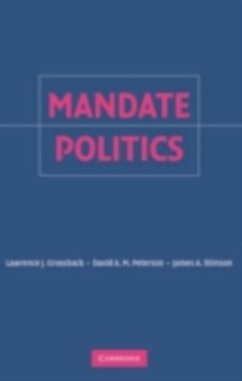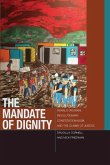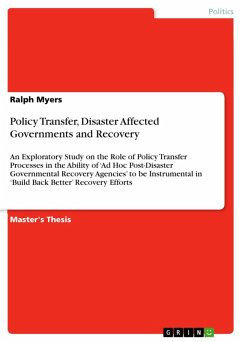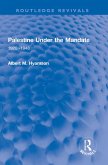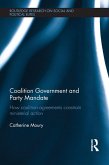Whether or not voters consciously use their votes to send messages about their preferences for public policy, the Washington community sometimes comes to believe that it has heard such a message. In this 2006 book the authors ask 'What then happens?' They focus on these perceived mandates - where they come from and how they alter the behaviors of members of Congress, the media, and voters. These events are rare. Only three elections in post-war America (1964, 1980 and 1994) were declared mandates by the media consensus. These declarations, however, had a profound if ephemeral impact on members of Congress. They altered the fundamental gridlock that prevents Congress from adopting major policy changes. The responses by members of Congress to these three elections are responsible for many of the defining policies of this era. Despite their infrequency, then, mandates are important to the face of public policy.
Dieser Download kann aus rechtlichen Gründen nur mit Rechnungsadresse in A, B, BG, CY, CZ, D, DK, EW, E, FIN, F, GR, HR, H, IRL, I, LT, L, LR, M, NL, PL, P, R, S, SLO, SK ausgeliefert werden.

